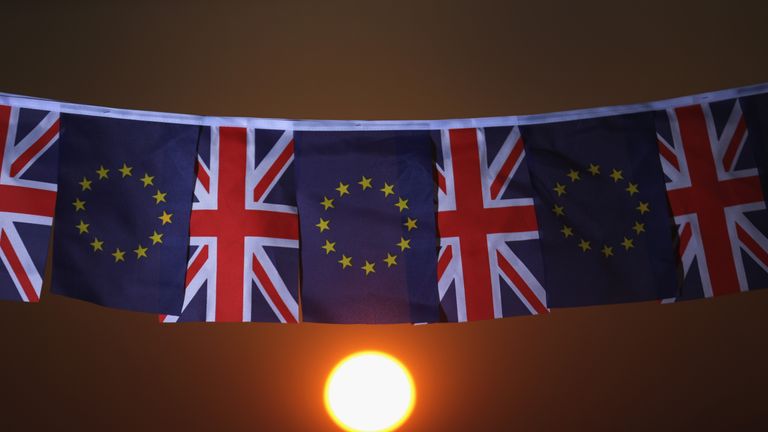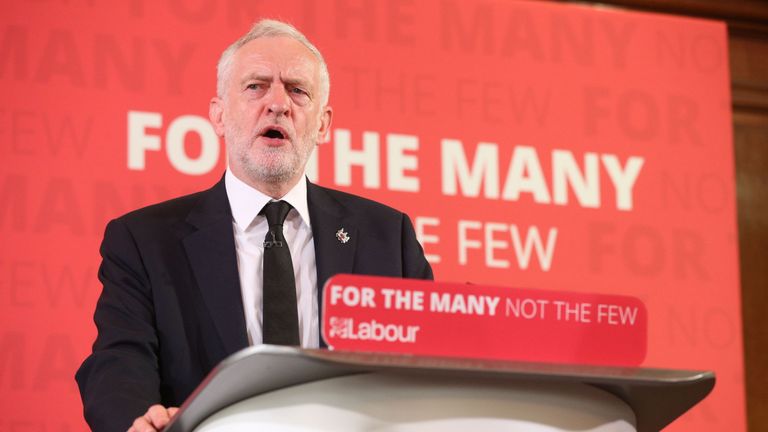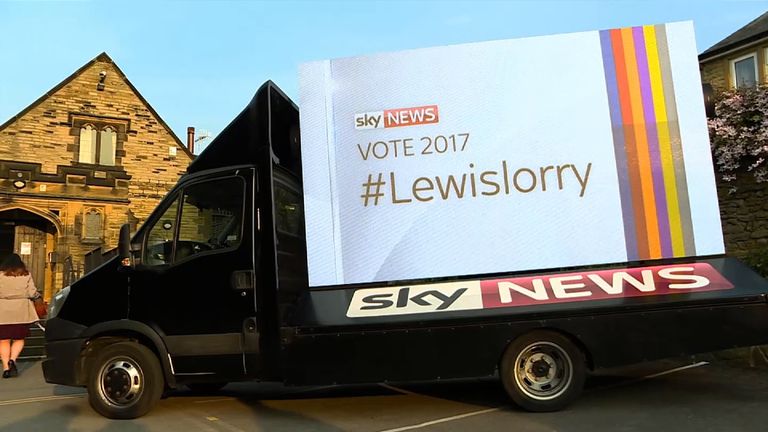What have we learned about the General Election after 1,214 miles on the road?
What does spending 50 days and 1,214 miles on the roads of the UK tell you about an election? Three things, says Lewis Goodall.
Wednesday 7 June 2017 15:53, UK
So that's it.
After 1,214 miles and 50 days of rowing in Cambridge, nightclubbing in Newcastle, rollercoasting in Blackpool, hiking in Snowdonia - and lots of talking to voters - the Lewis Lorry election tour has come to its end.
Now is the perfect time, before the results have flooded in and the post-election ruminations and justifications have begun, to consider what - if anything - we've learnt from our travels.
1) This wasn't the Brexit election
As Professor David Runciman told me in Cambridge: "This has been an astonishingly parochial election, and I'm amazed."
So too, must be the Prime Minister, who called the 2017 poll on a Brexit prospectus.
And yet so few voters I met independently brought up Brexit or the credentials of either Mrs May or Mr Corbyn in negotiating the deal that is to come.
Perhaps, given neither of them necessarily had many answers as to what they intend to do, this weirdly suited both of them.
After the referendum there was a lot of giddy talk from commentators and pundits that, similarly to the 2014 Scottish independence referendum, the EU referendum would introduce a new axis on British politics that would supersede traditional party loyalties - and that ergo many of Labour's working class voters, many of whom voted so overwhelmingly for Brexit, would peel away.
I really didn't encounter much evidence for that.
When I put that idea to many long-time Labour voters, in places like Birmingham and Hartlepool, the response was usually one of a puzzled incredulity.
One man tucking into a cone of chips in the south Birmingham marginal of Northfield told me: "Why can't I vote for Labour? You can vote for anyone as long as we're leaving, can't you?"
We perhaps underestimated the remaining strength of the attachment between much of the working class and Labour.
It is diminished, but it still exists.
What seems like a neat analysis in Westminster, moving voters around according to new Leave/Remain categories, underestimates the breadth and emotional depth on which electors survey the democratic field.
And what really struck me is actually how potentially brilliant the Corbyn strategy has been.
When I went to Leave constituencies, many traditional Labour voters felt comfortable voting for Corbyn because they believe he would deliver Brexit.
But then in safe Remain constituencies like Cambridge, hardcore Remain supporters there also feel comfortable voting for Labour because they think they will deliver a better deal and softer Brexit than the Tories.
Corbyn has therefore managed to do what many thought was impossible - stitch the Remain/Leave fission within the Labour party's core vote back together again - at least for the time being.
And he probably did it by being pretty unclear, even nebulous about his views on the deal and Brexit overall, something for which he received much criticism in the early months after the referendum.
But by accident or design a rather opaque strategy seems to have worked.
2) The Labour vote has solidified
We could feel the electoral plates of this election shift as the weeks bore on.
When we started, in the South Wales valley town of Merthyr Tydfil, the first place to elect a Labour MP, the anti-Labour feeling was visceral.
Jeremy Corbyn was considered weak, useless even; many traditional Labour voters told me they felt disenfranchised and that Theresa May appealed. "Even stronger than Maggie" was a common refrain.
Slowly, that began to change. The numbers who waxed lyrical about Mrs May shrank, the numbers who expressed surprised enthusiasm for Mr Corbyn grew.
In particular I could see the core Labour vote in places like Birmingham and the North East solidify and rally behind him.
I therefore think that the tightening we've seen in the polls is real. It seems that the share price of Mrs May, going into the election, was too high among the public.
Despite being Prime Minister for nine months, her flaws were virtually unknown outside Westminster. Jeremy Corbyn's by contrast were almost universally acknowledged.
As the campaign wore on, you could feel voters becoming gradually warmed and pleasantly surprised by Mr Corbyn's performance and increasingly concerned about Mrs May's.
Consequently, my conversations with voters seemed quite different at the end of the campaign to how they were at the beginning.
3) The Conservatives will probably still win
Despite all of this, the Conservatives are surely still in poll position to win and win well.
In all of my travels I failed to meet a single voter who said they voted Conservative in 2015 but were switching to Labour this time.
Given that Labour need to win millions of those people to win a majority, a Labour victory is a long way off.
Nonetheless, I think Mr Corbyn's unexpectedly strong performance and Mrs May's weak one has applied a tourniquet to the Labour party's electoral bleeding and reduced the prospect of an enormous majority.
At the start of this campaign, the party was in the grips of talk about being in its death throes. By fighting a decent campaign on its terms, that has changed.
It may still be false hope, a chimera, and on 9 June the talk will once again be about the strange death of Labour Britain.
But it shows that the campaign has mattered, that politicians don't get to set the terms of an election, voters do. It has changed the conversation.
I'm parking up my lorry for the night on Thursday and instead will be bringing you the live results from the studio, sifting through the data, seat by seat alongside Adam Boulton, Jane Secker and Ed Conway to bring you the best results service on TV.
But hopefully, when we resurrect the Brexit lorry, I'll see you out on the road again.










